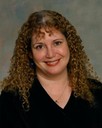 Frances Rauscher, Ph.D.
Frances Rauscher, Ph.D.
Professor Emerita
Email: rauscher@uwosh.edu
Frances Rauscher is an Endowed Professor at the University of Wisconsin Oshkosh. Although primarily interested in music cognition, other research interests include the role of hand gestures in speech production, the effects of environmental enrichment on animal cognition, and time perception. She has received the John McNaughton Rosebush award for excellence in teaching, scholarship, and service, as well as the Distinguished Teaching Award.
Dr. Rauscher holds Bachelor’s degrees in both cello performance and psychology, as well as Master’s and Ph.D. degrees in Experimental Psychology from Columbia University. In 1992 she accepted a three-year post-doctoral position at the Center for Neurobiology of Learning and Memory at the University of California Irvine, where she began investigating the effects of music on cognitive performance. In 1997 she received the William T. Grant Faculty Scholars Award to explore the relationship between music instruction and cognition in disadvantaged preschool children. She has since expanded her research to at-risk children in a public school setting. Other ongoing research involves the effects of auditory exposure on spatial cognition in rats, and interval timing. She has presented her research at universities and conferences throughout North America, Europe, Asia, and Australia.
Dr. Rauscher is married to cognitive neuroscientist Sean Hinton. Together they enjoy kayaking, hiking, and all manner of wildlife observation.
Selected Publications
- Gruhn, W., & Rauscher, F.H. (2008). Neurosciences in music pedagogy. New York: Nova Science Press.
- Gruhn, W., & Rauscher, F.H. (2008). Introduction to neurosciences in music pedagogy. In W. Gruhn & F.H. Rauscher (Eds.), Neurosciences in music pedagogy. New York : Oxford University Press.
- Gruhn, W., & Rauscher, F.H. (2008). The neurobiology of learning: New approaches to music pedagogy. In W. Gruhn & F.H. Rauscher (Eds.), Neurosciences in music pedagogy. New York : Oxford University Press. PDF
- Caterall, J., & Rauscher, F.H. (2008). Unpacking the impact of music on intelligence. In W. Gruhn & F.H. Rauscher (Eds.), Neurosciences in music pedagogy. New York : Oxford University Press. PDF
- Rauscher, F.H. , & Hinton, S.C. (2006). The Mozart effect: Music listening is not music instruction. Educational Psychologist, 41 , 233-238. PDF
- Rauscher, F.H. , (2006). The Mozart effect in rats: Reply to Steele. Music Perception, 23 , 447-453. PDF
- Rauscher, F.H. , (2004). Can (and should) current music education research influence music education.? In S.D. Lipscomb, R. Ashley, R.O. Gjerdingen, & P. Webster (Eds.), Proceeding of the International Conference of Music Perception and Cognition. Evanston, IL : Northwestern University.
- Rauscher, F.H. (2003). Can music instruction affect children’s cognitive development? Eric Digest. [EDO-PS-03-12] PDF
- Rauscher, F.H. (2003). Effects of piano, rhythm, and singing instruction on the spatial reasoning of at-risk children. Proceedings of the European Society for the Cognitive Sciences of Music, Hannover , Germany : Hannover University Press. PDF
- Rauscher, F.H. & Hinton , S.C. (2003). Type of music training selectively influences perceptual processing. Proceedings of the European Society for the Cognitive Sciences of Music, Hannover , Germany : Hannover University Press. PDF
- Gruhn, W., & Rauscher, F.H. (2002). The neurobiology of music cognition and learning. In R. Colwell & C. Richardson (Eds.), Second handbook on music teaching and learning (pp. 445-460). New York : Oxford University Press.
- Rauscher, F.H. (2002). Mozart and the mind: Factual and fictional effects of musical enrichment. In J. Aronson (Ed.), Improving academic achievement: Impact of psychological factors on education (pp. 269-278). New York : Academic Press. PDF
- Rauscher, F.H., Bowers, M.K., Dettlaff, D.M., & Scott, S.E. (2002, April). Effects of environmental, social, and auditory enrichment on maze learning in rats: Implications for arousal. Poster presented at the Cognitive Neuroscience Society, San Francisco , CA . PDF
- Rauscher, F.H. (2001). Current research in music, intelligence, and the brain. In M. McCarthy (Ed.), Enlightened advocacy: Implications of research for arts education policy and practice (pp. 5-16). . College Park , MD : University of Maryland Press.
- Rauscher, F.H. (2000, August). Is the “Mozart effect” debunked? Poster presented at the bi-annual meeting of the International Conference on Music Perception and Cognition, Keele University , Keele , UK . PDF
- Rauscher, F.H. , & Zupan, M. (2000). Classroom keyboard instruction improves kindergarten children’s spatial-temporal performance: A field experiment. Early Childhood Research Quarterly, 15 , 215-228. PDF
- Rauscher, F.H. (1999). Music exposure and the development of spatial intelligence in children. Bulletin of the Council for Research in Music Education, 142 35-47. PDF
- Rauscher, F.H. (1999). Reply: Prelude or requiem for the ‘Mozart effect’? Nature, 400 , 827-828.
- Rauscher, F.H. , Robinson, K.D., & Jens, J. (1998). Improved maze learning through early music exposure in rats. Neurological Research, 20 , 427-432. PDF
- Rauscher, F.H. , & Shaw, G.L. (1998). Key components of the “Mozart Effect.” Perceptual and Motor Skills, 86 , 835-841. PDF
- Rauscher, F.H. , Shaw, G.L., Levine, L.J., Wright, E.L., Dennis, W.R., & Newcomb, R. (1997). Music training causes long-term enhancement of preschool children’s spatial-temporal reasoning abilities. Neurological Research, 19 , 1-8. PDF
- Sarnthein, J., von Stein, A., Rappeisberger, P., Petsche, H., Rauscher, F.H. , & Shaw, G.L. (1997). Persistent patterns of brain activity: an EEG coherence study of the positive effect of music on spatial-temporal reasoning. Neurological Research, 19 , 107-116. PDF
- Rauscher, F.H. (1997). A cognitive basis for the facilitation of spatial-temporal cognition through music instruction. In Verna Brummett (Ed.), Ithaca Conference ’96 Music as Intelligence: A Sourcebook (pp.31-44). Ithaca : Ithaca College Press. PDF
- Rauscher, F.H. , Robinson, K.D., & Jens, J. (1997, June). Spatial performance as a function of early music exposure in rats (Rattus norvegicus). In A. Gabrielsson (Ed.), Third triennial conference of the European Society for the Cognitive Sciences of Music . Uppsala , Sweden : Uppsala University Press.
- Rauscher, F.H. , Krauss, R.M., & Chen, Y. (1996). Gesture, speech and lexical access: The role of lexical movements in speech production. Psychological Science, 7 (4), 226-231.
- Krauss, R.M., Dushay, R.A., Chen, Y., & Rauscher, F.H. (1995). The communicative value of conversational hand gestures. Journal of Experimental Social Psychology, 31 , 533-552.
- Rauscher, F. H. , Shaw, G.L., & Ky, K.N. (1995). Listening to Mozart enhances spatial-temporal reasoning: Towards a neurophysiological basis Neuroscience Letters, 185 , 44-47. PDF
- Schachter, S., Rauscher, F. , Christenfeld, N., & Crone, K. (1994). The vocabularies of academics. Psychological Science, 5 , 37-41.
- Rauscher, F.H. , Shaw, G.L., & Ky, K.N. (1993). Music and spatial task performance. Nature, 365 , 611. PDF
- Christenfeld, N., Schachter, S., & Bilous, F. (1991). Filled pauses and gestures: it’s not coincidence. Journal of Psycholinguistic Research, 20 (1), 1-10.
- Schachter, S., Christenfeld, N., Ravina, B., & Bilous, F. (1991). Speech disfluency and the structure of knowledge. Journal of Personality and Social Psychology, 60 (3), 362-367.
- Bilous, F. , & Krauss, R.M. (1988). Dominance and accommodation in the conversational behaviors of same- and mixed-gender dyads. Journal of Language and Communication, 8 , 183-194.
University of Wisconsin Oshkosh
Psychology Department
Clow Faculty, Room W010
(920) 424-2300
Email Us

